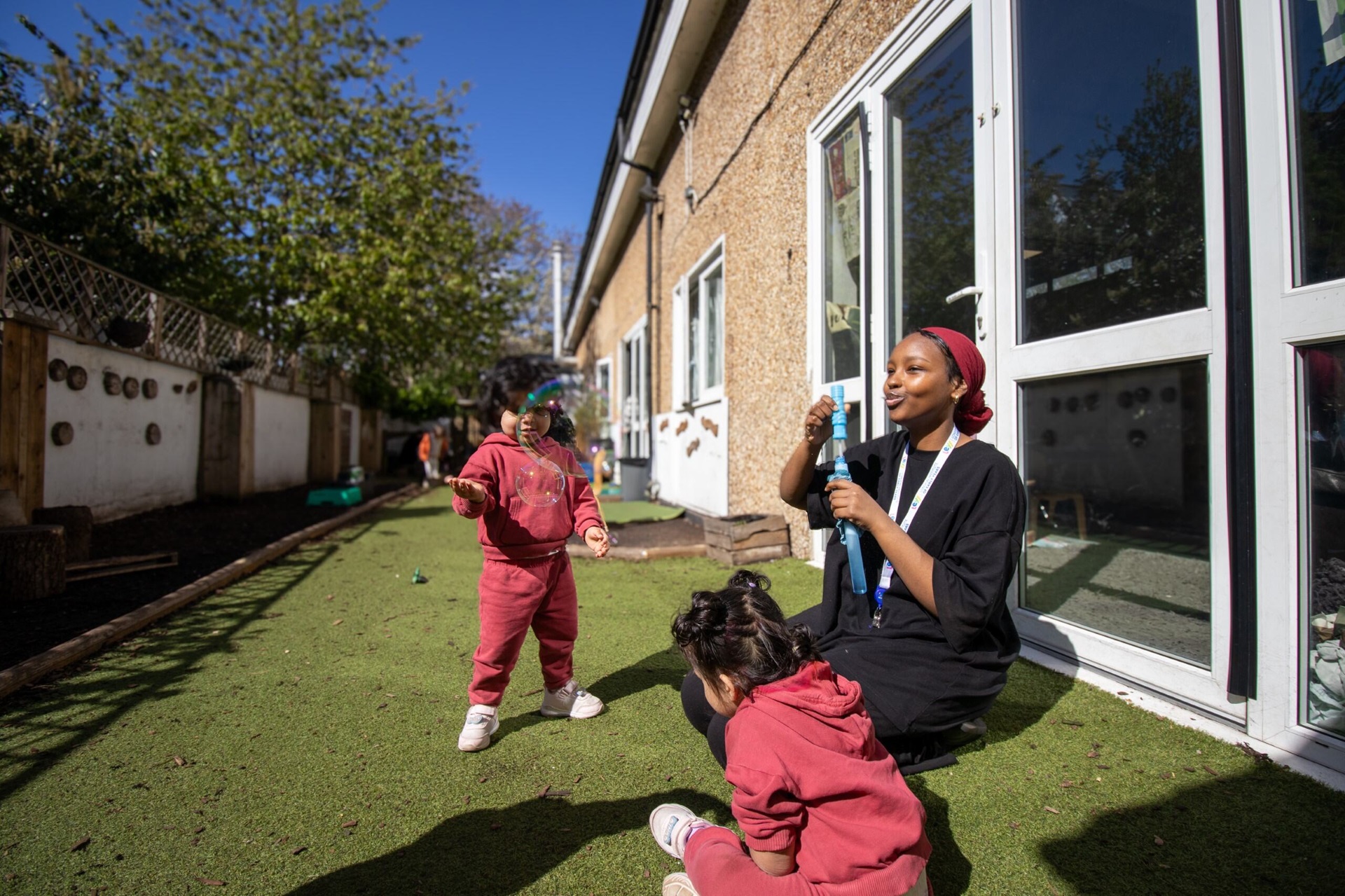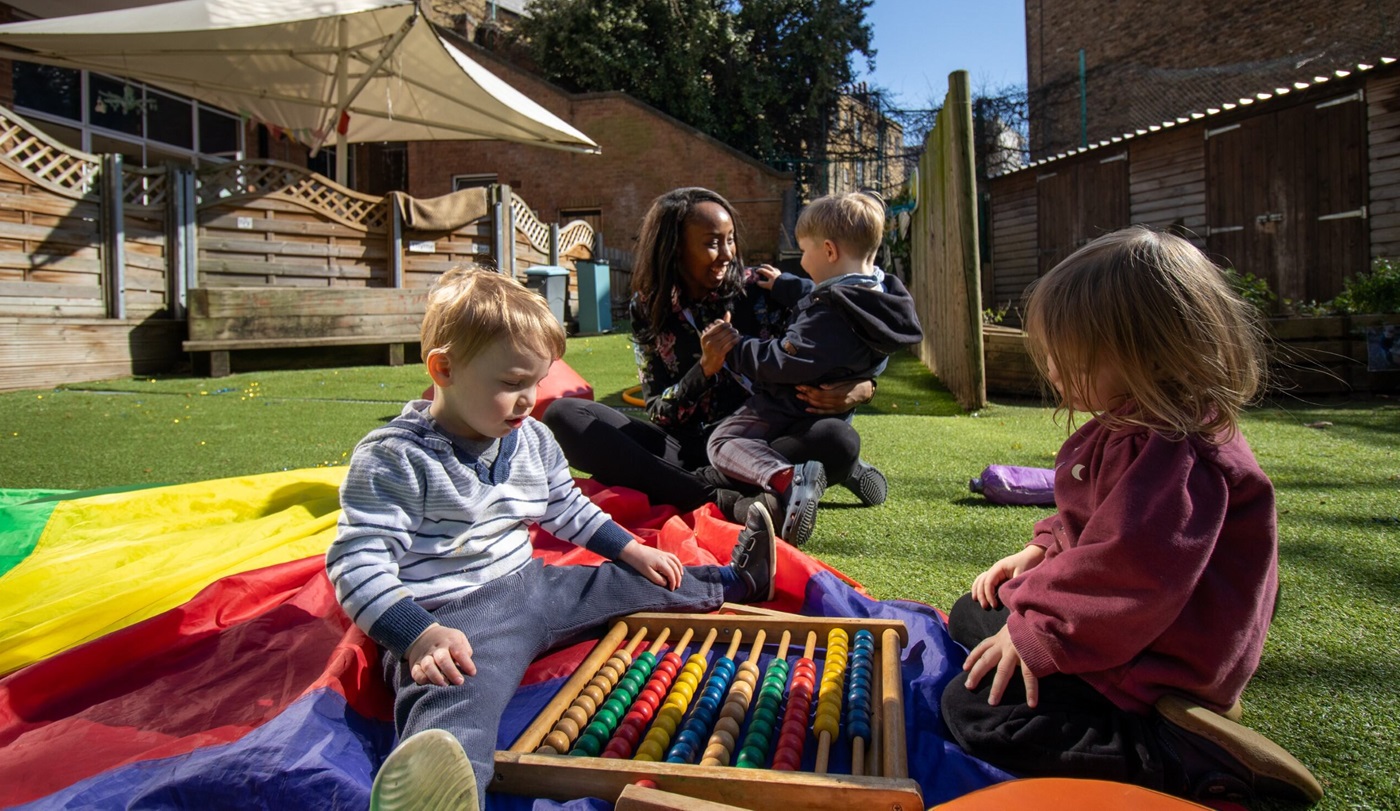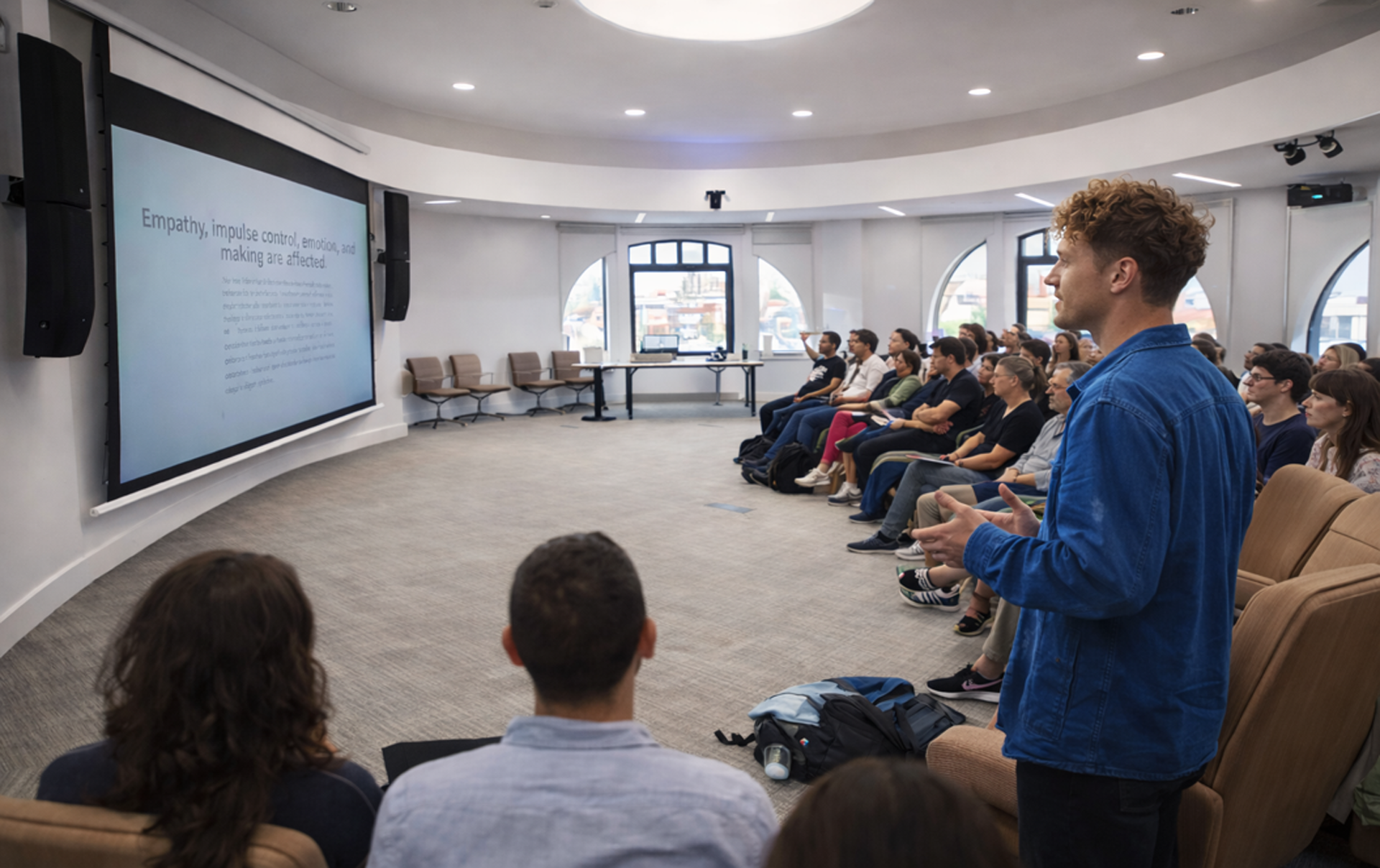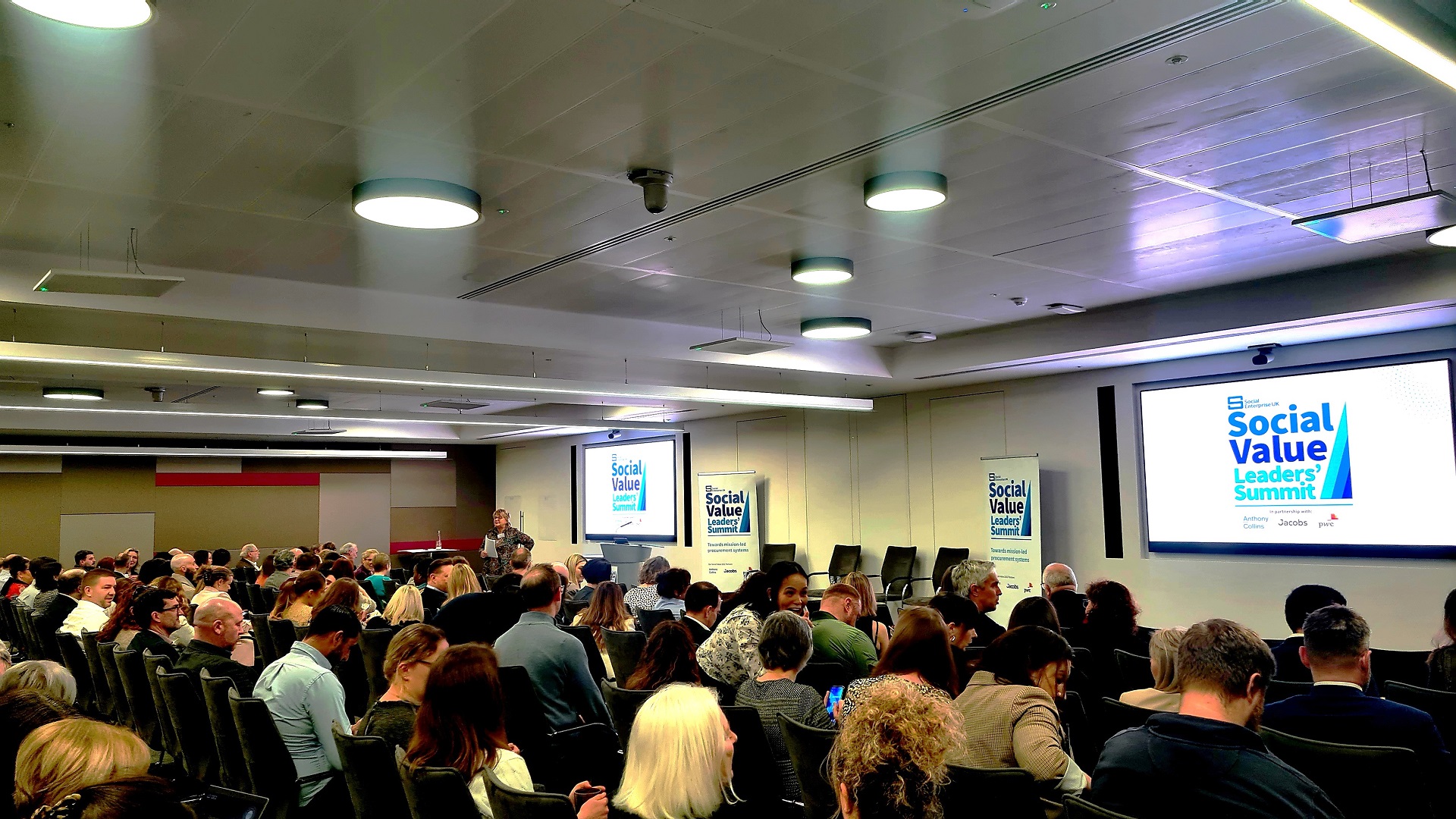Case studies
LEYF – Affordable childcare: the bedrock for economic growth

If we want workers to be productive and boost the economy, someone is going to have to look after the kids. London Early Years Foundation is helping to make childcare affordable for everyone.
You wouldn’t think the late, great Whitney Houston and PM Keir Starmer have much in common. But just as Whitney believed children are the future and that we need to teach them well, Keir Starmer wrote an election-winning manifesto that promised ‘A new Britain … where our children are equipped with the skills to thrive in the future’.
His government has had a relentless focus on growth since gaining power, but growth requires productivity and if the workers are going to be productive, someone is going to have to look after the kids. And for that to happen, childcare needs to be affordable for everyone.
Providing access to high quality, affordable early years education and care is the purpose of London Early Years Foundation (LEYF), which looks after 4,000 children across 43 nurseries in 13 London boroughs. Only 14% of nurseries nationally are rated ‘outstanding’ by children’s services regulator Ofsted but 46% of LEYF’s nurseries are rated as such.
One mother, whose child attends LEYF New Cross Nursery & Pre-School, describes it as “Excellent. Staff are well trained, clearly love their job and are very caring. Children are entertained with many activities promoting language, musical awareness, physical agility etc. We’re glad our child attends New Cross and wouldn’t hesitate to recommend it.”
Three quarters of LEYF’s nurseries are situated in areas identified as having high levels of deprivation, but all children are welcome, irrespective of social background or ability. Equal access to childcare is made possible by LEYF’s unique cross-subsidiary model, with profits from nurseries in wealthier areas helping to subsidise places for children in less affluent communities. Financially, better performing nurseries in Crystal Palace, Camberwell and Maida Value subsidise nursery places in poorer neighbourhoods.
“Since our son started attending LEYF Nursery Barking Riverside, we’ve seen remarkable growth in him. He has become more confident, independent, and sociable. What we appreciate most is the strong support and communication we receive from the staff. It truly feels like a partnership, with everyone working together to ensure the best development for our son,” commented another parent.
Growing up together
The organisation started in 1903 as Westminster Health Society during a time of poverty and shockingly high mortality when founders embarked on an ambitious plan to promote child welfare and family health at the heart of a community in need. More than a century later, that focus on making a positive social impact has blossomed into all areas of the business.
Many of LEYF’s senior staff started out as apprentices in the organisation, helped by a Career Pathways programme which supports growth into leadership. Of the 1,000 staff, 120 are apprentices, an approach which reduces recruitment costs, strengthens retention, and supports social mobility.
Bobbi Jo describes how, when she first started as a LEYF apprentice, she just wanted to find a job she enjoyed where she could keep learning. “I did and I’ve never stopped learning. LEYF supported me through my degree and gave me the confidence to keep progressing. I always hoped I’d become a manager by the time I was 30… but I made it at 25! It’s been such a journey.” An Early Years Degree graduate, Bobbi Jo in now a Nursery Manager at LEYF’s Bessborough Nursery and Pre-School.
All staff (including the chefs and cleaners) can access tailored training, covering subjects such as child development, sustainability, SEND, and nutrition – ensuring children benefit from confident, knowledgeable educators. LEYF also offers a bespoke Early Years degree with the University of Wolverhampton.

Playing together in the sun at LEYF Bessborough
Keir Starmer’s manifesto focused on growth that promised ‘A new Britain … where our children are equipped with the skills to thrive in the future’. He would no doubt be happy to know that LEYF’s work has led to business growth, with revenue increasing by 11% and 75 jobs being created last year.
LEYF has grown steadily and (importantly for a social business) sustainably over the past decade, expanding from 23 social enterprise nurseries in 2014 to 43 nurseries by 2025. This contrasts with the picture generally, with research by UCL finding that the number of nurseries in England declined between 2018 and 2024. They found a 19% decline in the not-for-profit group.
If LEYF’s trajectory continues, it will help to meet the increasing demand for quality childcare. A 2024 report by the London Assembly found a shortage of available childcare and staff shortages, noting the knock-on effect this can have on women, who statistically are more likely to have to choose between career progression and childcare costs.
Instead of being surrendered to shareholders, as a social enterprise, LEYF’s profits are reinvested to provide more childcare services to more communities. A growing business that nurtures the development of children and staff, making for healthier, happier communities. That’s the kind of growth both the Prime Minister and the electorate can get behind.



